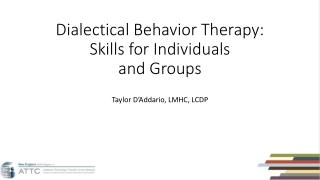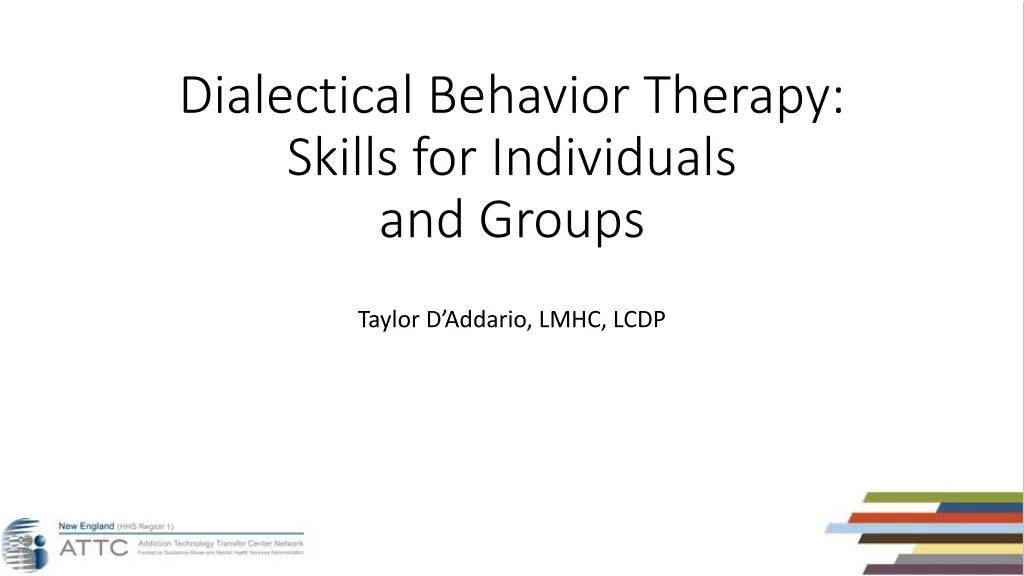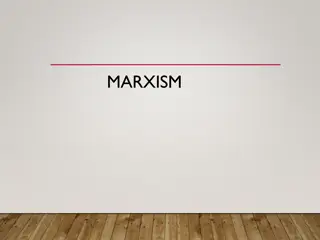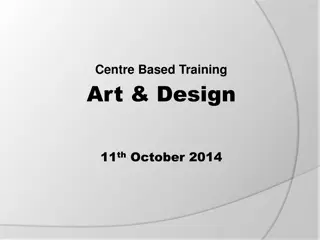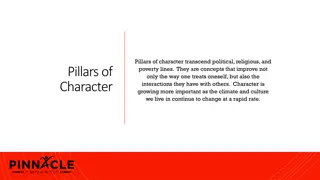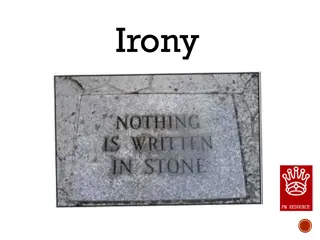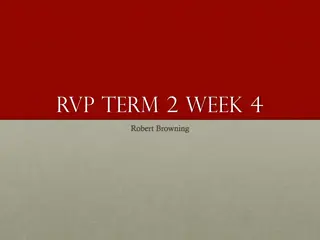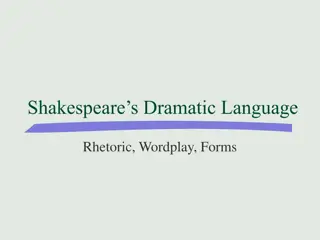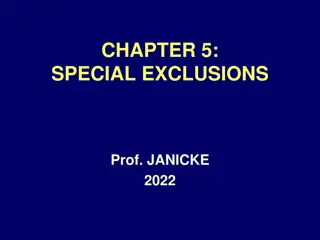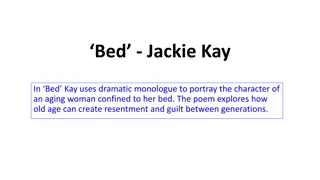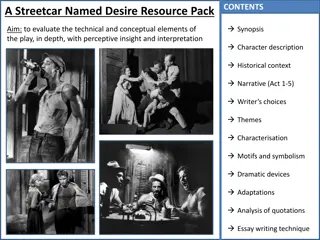The Art of Dramatic Writing: Exploring Character Development and Dialectical Approach
Every object and human has multiple dimensions that influence character development in dramatic writing. Understanding the physiological, sociological, and psychological aspects, along with the impact of the environment and dialectical approach, shapes characters' growth and decisions in storytelling.
Download Presentation

Please find below an Image/Link to download the presentation.
The content on the website is provided AS IS for your information and personal use only. It may not be sold, licensed, or shared on other websites without obtaining consent from the author. Download presentation by click this link. If you encounter any issues during the download, it is possible that the publisher has removed the file from their server.
E N D
Presentation Transcript
Character By Francis John Corva, III
The Art of Dramatic Writing (Egri) - The Bone Structure Every object has three dimensions: depth, height, & width Human beings have an additional three different dimensions: physiology, sociology, psychology physiology - our physical make up sociology - Where were you raised? Who were your friends? What potential did you have based on your environment? psychology - this is the product of the previous two; it includes temperament, attitudes, etc.
The Art of Dramatic Writing (Egri) - Environment Human beings usually react under the pressure of the environment Characters have to come home to confront something The character is as secure as the rest of the world is under certain circumstances Unconscious recollections color our judgment Real love is the capacity to endure any hardship for the beloved The simple love affair is subject to any number of variations. Too much or too little money will influence its course. A steady or insecure job will do the same.
The Art of Dramatic Writing (Egri) - The Dialectical Approach dialectics - comes from the old Greeks who use it to mean conversation or dialogue Socrates would state a proposition, then find a contradiction in it; he would then work to correct it, only to find another contradiction - the contradiction inspires movement, inquiry and activity thesis - the proposition antithesis - the contradiction synthesis - the combination of the original proposition and the contradiction
The Art of Dramatic Writing (Egri) - Character Growth We change; it s human nature Death of a Salesman starts with illusions and ends with painful knowledge Cat on a Hot Tin Roof starts with frustration and ends with hope Othello starts with love, ends with jealousy, murder, and suicide One character s decision sets in motion another decision from his adversary Physiological, sociological, and psychological factors all contribute to a character making a decision Every character must have within it the seeds of future development Growth is evolution; climax is revolution / Growth character s reaction to a conflict in which he is involved
The Art of Dramatic Writing (Egri) - Strength of Will Weak characters will not fight because the pressure isn t great enough A character must overcome his internal contradiction to achieve his goal A character that cannot make up her/his/their mind, ruins or stops the play Decisions permit the character to mature, and they permit for transition Re: the beginning of your story - Did you catch your character at that particular moment when she/he/they was ready for conflict?
The Art of Dramatic Writing (Egri) - Plot or Character? How much weight can your characters carry? Character and environment are one in many cases; they interact with one another
The Art of Dramatic Writing (Egri) - The Antagonist The antagonist must be as strong as the protagonist
The Art of Dramatic Writing (Egri) - Orchestration Consider larger battles in your story: Fascism vs. democracy Religion vs. atheism Consider movements in your story: Love to hate Indifference to annoyance
The Art of Dramatic Writing (Egri) - Unity of Opposites Unity of opposites means that the characters must see the conflict through until the end; they remain united throughout the play (e.g. Batman and Joker) - compromise must remain impossible The protagonist and antagonist must have an unbreakable bond between them; if not, there will be no climax





